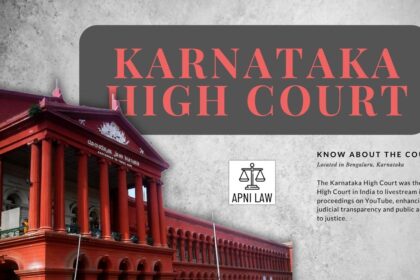Code:
This section deals with the jurisdiction of the court where a petition under the Hindu Marriage Act should be filed.
Every petition under this Act shall be presented to the District Court within the local limits of whose ordinary original civil jurisdiction:
(i) the marriage was solemnized, or
(ii) the respondent, at the time of the presentation of the petition, resides, or
(iii) the parties to the marriage last resided together, or
(iiia) in case the wife is the petitioner, where she is residing on the date of presentation of the petition; or
(iv) the petitioner is residing at the time of the presentation of the petition, in a case where the respondent is at that time residing outside the territories to which this Act extends, or has not been heard of as being alive for a period of seven years or more by those persons who would naturally have heard of him if he were alive.
Explanation:
The petition can be presented to the District Court within whose ordinary original civil jurisdiction:
- (i) the marriage was solemnized: This means the petition can be filed in the court where the marriage ceremony took place.
- (ii) the respondent, at the time of the presentation of the petition, resides: The petition can be filed in the court where the respondent (the person against whom the petition is filed) resides at the time of filing.
- (iii) the parties to the marriage last resided together: If the parties lived together in a particular place before their separation, the petition can be filed in the court of that place.
- (iiia) in case the wife is the petitioner, where she is residing on the date of presentation of the petition; or: This provision specifically gives the wife the right to file the petition in the court where she is residing, regardless of other factors.
- (iv) the petitioner is residing at the time of the presentation of the petition, in a case where the respondent is at that time, residing outside the territories to which this Act extends, or has not been heard of as being alive for a period of seven years or more by those persons who would naturally have heard of him if he were alive: This provision applies when the respondent is outside India or has been missing for seven years. In this case, the petition can be filed in the court where the petitioner resides.
Illustration:
Suppose a couple got married in Delhi and lived together in Mumbai. Later, they separated and the wife moved to Bangalore while the husband stayed in Mumbai. If the wife wants to file a petition for divorce, she can file it in:
- Delhi, as that’s where the marriage took place.
- Mumbai, as that’s where the husband resides.
- Bangalore, as that’s where the wife is currently residing.
Common Questions and Answers:
Q: What if the marriage was not solemnized in India?
A: If the marriage was solemnized outside India, the petition will be filed based on the residence of the respondent or the last place of residence of the couple.
Q: What happens if the respondent is missing or untraceable?
A: In such cases, the petitioner can file the petition in the court where they reside.
Q: Can a petition be filed in multiple courts?
A: No, the petition must be filed in only one court, the jurisdiction of which is determined by the conditions mentioned in Section 19.
Conclusion
Section 19 of the Hindu Marriage Act ensures that matrimonial petitions are filed in the appropriate jurisdiction, promoting judicial efficiency and convenience for the parties involved. By specifying where such petitions may be presented—based on residence, last cohabitation, or location of the respondent—the law helps streamline the legal process and reduce unnecessary delays. This provision is crucial for ensuring that matrimonial disputes are heard by a competent court that has proper territorial jurisdiction, ultimately supporting a fair and accessible justice system.
For more guidance on filing matrimonial cases and understanding family court procedures, visit ApniLaw.








